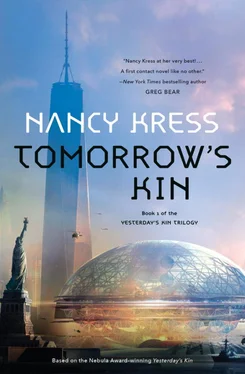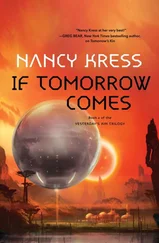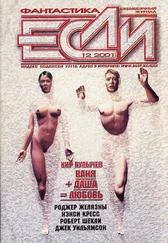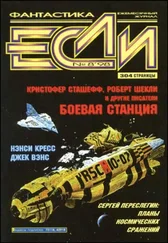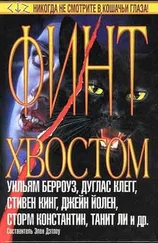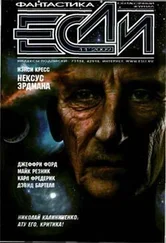She studied his face. In the biology department at the university, Evan had always been the one who knew how to obtain travel money for a conference, interviews with Nobel Prize winners, an immediate appointment with the dean. He had the knack, as she did not, for useful connections. She said, “You know something.”
“No. I don’t. Not yet.”
“Find out.”
He nodded and turned off the water. The music crescendoed: Brandenburg Concerto No. 2, which had gone out into space on the “golden record” inside Voyager 1 .
* * *
The secret experiment turned out to be not all that secret.
Evan followed the rumors. Within a day he had found a lab tech on the Biology Team who knew a scientist on the Spore Team who referred him, so obliquely that Evan almost missed it, to a security officer. Evan came to Marianne in her room, where she’d gone instead of eating lunch. He stood close to her and murmured in her ear, ending with, “They’ll let us observe. You—What’s that, then?”
The last sentence was said in a normal voice. Evan gazed at the piece of paper in Marianne’s hands. She had been looking at it since she found it under her door.
“Another note from Noah. He isn’t… he still can’t… Evan, I need to go ashore to see my new grandchild.”
Evan blinked. “Your new grandchild?”
“Yes. He’s two months old already and I haven’t even seen him.”
“It’s not safe to leave the Embassy now. You know that.”
“Yes. But I need to go.”
Gently Evan took the note from her and read it. Marianne saw that he didn’t really understand. Young, childless, orphaned… how could he? Noah had not forgiven her for never telling him that he was adopted. That must be why he said he might not ever see her again; no other reason made sense. Although maybe he would change his mind. Maybe in time he would forgive her, maybe he would not, maybe the world would end first. Before any of those things happened, Marianne had to see little Jason. She had to affirm what family ties she had, no matter how long she had them. Or anyone had them.
She said, “I need to talk to Ambassador Smith. How do I do that?”
He said, “Do you want me to arrange it?”
“Yes. Please. For today.”
He didn’t mention the backlog of samples in the lab. No one had replaced Gina. As family trees of the L7 haplogroup were traced in the matrilineal line, more and more of Smith’s “clan” were coming aboard the Embassy . Marianne suspected they hoped to be shielded or transported when the spore cloud hit. She also suspected they were right. The Denebs were…
… were just as insistent on family connections as she was, risking her life to see Ryan, Connie, and the baby.
Well.
* * *
A helicopter flew her directly from the large pier outside the Embassy (so that’s what it was for). When Marianne had last been outside, autumn was just ending. Now it was spring, the reluctant northern spring of tulips and late frosts, cherry blossoms and noisy frogs. The Vermont town where Connie’s parents lived, and to which Ryan had moved his family for safety, was less than twenty miles from the Canadian border. The house was a pleasant brick faux-Colonial set amid bare fields. Marianne noted, but did not comment on, the spiked chain-link fence around the small property, the electronic-surveillance sticker on the front door, and the large Doberman whose collar Ryan held in restraint. He had hastened home from his fieldwork when she phoned that she was coming.
“Mom! Welcome!”
“We’re so glad you’re here, Marianne,” Connie said warmly. “Even though I suspect it isn’t us you came to see!” She grinned and handed over the tiny wrapped bundle.
The baby was asleep. Dark fuzz on the top of his head, pale silky skin lightly flushed, tiny pursed pink mouth sucking away in an infant dream. He looked so much like Ryan had that tears pricked Marianne’s eyes. Immediately she banished them: no sorrow, neither nostalgic nor catastrophic, was going to mar this occasion.
“He’s beautiful,” she said, inadequately.
“Yes!” Connie was not one of those mothers who felt obliged to disclaim praise of her child.
Marianne held the sleeping baby while coffee was produced. Connie’s parents were away, helping Connie’s sister, whose husband had just left her and whose three-year-old was ill. This was touched on only lightly. Connie kept the conversation superficial, prattling in her pretty voice about Jason, about the dog’s antics, about the weather. Marianne followed suit, keeping to herself the thought that, after all, she had never heard Connie talk about anything but light and cheerful topics. She must have more to her than that, but not in front of her mother-in-law. Ryan said almost nothing, sipping his coffee, listening to his wife.
Finally Connie said, “Oh, I’ve just been monopolizing the conversation! Tell us about life aboard the Embassy . It must be so fascinating!”
Ryan looked directly at Marianne.
She interpreted the look as a request to keep up the superficial tone. Ryan had always been as protective of Connie as of a pretty kitten. Had he deliberately chosen a woman so opposite to his mother because Marianne had always put her work front and center? Had Ryan resented her for that as much as Noah had?
Pushing aside these disturbing thoughts, she chatted about the aliens. Connie asked her to describe them, their clothes, her life there. Did she have her own room? Had she been able to decorate it? Where did the humans eat?
“We’re all humans, Terrans and Denebs,” Marianne said.
“Of course,” Connie said, smiling brilliantly. “Is the food good?”
Talking, talking, talking, but not one question about her work. Nor about the spore cloud, progress toward a vaccine, anything to indicate the size and terror of the coming catastrophe. Ryan did ask about the Embassy, but only polite questions about its least important aspects: how big it was, how it was laid out, what was the routine. Safe topics.
Just before a sense of unreality overwhelmed Marianne, Ryan’s cell rang, and the ringing woke the baby, who promptly threw up all over Marianne.
“Oh, I’m sorry!” Connie said. “Here, give him to me!”
Ryan, making gestures of apology, took his cell into the kitchen and closed the door. Connie reached for a box of Wet Ones and began to wipe Jason’s face. She said, “The bathroom is upstairs to the left, Marianne. If you need to, I can loan you something else to wear.”
“It would have to be one of your maternity dresses,” Marianne said. It came out more sour than she’d intended.
She went upstairs and cleaned baby vomit off her shirt and jeans with a wet towel. The bathroom was decorated in a seaside motif, with hand towels embroidered with sailboats, soap shaped like shells, blue walls painted with green waves and smiling dolphins. On top of the toilet tank, a crocheted cylinder decorated like a buoy held a spare roll of toilet paper.
Keeping chaos at bay with cute domesticity. Good plan. And then: Stop it, Marianne.
Using the toilet, she leafed idly through magazines stacked in a rustic basket. Good Housekeeping , Time , a Macy’s catalog. She pulled out a loose paper with full-color drawings:
HOW TO TELL PURPLE LOOSESTRIFE FROM NATIVE PLANTS DON’T BE FOOLED BY LOOK-ALIKES!
Purple loosestrife leaves are downy with smooth edges. Although usually arranged opposite each other in pairs, which alternate down the stalk at ninety-degree angles, the leaves may sometimes appear in groups of three. The leaves lack teeth. The flowers, which appear in mid- to late summer, form a showy spike of rose-purple, each with five to seven petals. The stem is stiff, four-sided, and may appear woody at the base of larger plants, which can reach ten feet tall. Average height is four feet. Purple loosestrife can be distinguished from the native winged loosestrife ( Lythrum alatum ), which it most closely resembles, by its generally larger size, opposite leaves, and more closely placed flowers. It may also be confused with blue vervain (pictured below), which has…
Читать дальше
